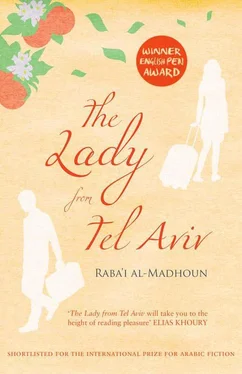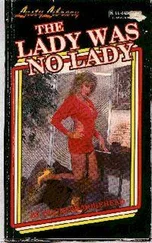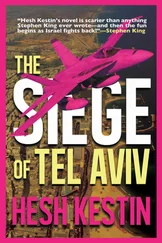I pull out my wallet, ‘How much is it, Abu Fares? Name your price.’
‘For you, I’m only charging one hundred and twenty dollars.’
I give Abu Fares the amount he asks for. He insists on hugging me. He gets into his car and races off towards Israel.
Suddenly, I am struck by the realization that Abu Fares charged me at least double the real fare. Bitterly, I shake my head. Abu Fares is not a bad guy. He’s a decent guy, no doubt. But he did trick me. He loves money more than his fellow countrymen. Foreign currency in particular, the distinctive smell of green dollars most of all.
I get to the main entrance at about 9. The sky is clean and bright, washed by the early morning light. The sun hides behind a half-finished building, casting half-finished shadows across a quiet, dusty plaza littered with concrete blocks, rocks and gravel.
I stand there, staring at the inert scene before me. I am nervous and doubtful — and begin to wonder if Abu Fares took my one hundred and twenty dollars and dropped me off in the middle of nowhere. I take a few steps forward, pulling my suitcase behind me. Faint whispers sound in my ear and I wheel around, trying to find where the voices are coming from. My eyes spot three boys smoking cigarettes nearby. They are sitting on a long marble bench under a makeshift sunshade of asbestos pieces. Behind them, concrete encloses the awning from one side. The wall stretches off toward the west where it finally disappears into a small grove.
I walk up to the boys and say hello. I ask where I should go to cross. Two of them are only concerned with blowing clouds of smoke into the air. They go on talking to each other as if I was not there. The other one turns to me and nods: ‘Over there, man.’ He points to a square kiosk that sits between two car lanes. Double wooden guard gates block each lane. My eyes follow his finger and I now see two Israeli soldiers walking in front of the gates, American-made M-16 rifles strapped across their backs. There is a rectangular opening on the façade of the kiosk, like a small window. The torso of a young female soldier fills most of it. I will go over there right now. I will present myself to the upper half of the Israeli soldier, or to one of the other soldiers.
I grab my suitcase and start walking toward them. One of the boys shouts at me, ‘Where you going, man? The crossing is closed!’
He is obviously right. I probably got here too early. I guess I will wait until it opens. I will have to trust these guys — they obviously know. ‘When does it open?’
‘God only knows!’ One of them shrugs, as if the opening and closing of the crossing was a fact of life he was used to. Then he points at the two soldiers, whose marching brings them to a halt in front of the guard gates. They exchange a few words, then turn and head off in opposite directions. As the boy’s friends kick at the gravel under the bench, he adds: ‘Those are the ones who know.’ He points at them again.
I stand there like a piece of wood, unable to ask any more questions. One of the other boys finally notices me and calls out in a tired voice: ‘Listen, man. We got here a little while ago, and it was already closed. Why it’s closed is anybody’s guess.’
‘He’s not from here,’ the other one says, looking me over. He studies me like I was an artifact, then asks bluntly, ‘Where’re you from?’
‘London.’
‘If you’ve got a British passport, you won’t have any problems. Foreigners have it easy. You can go through the VIP entrance as soon as they open.’
The way he pronounces ‘VIP’ makes it sound like a magic word. I am relieved to hear that I will be getting the kind of special treatment reserved for only the Very Important. When the crossing opens, I will not have to walk over to the soldiers to explain myself. I will not have to beg from the torso of the woman in the kiosk. Only now does it begin to dawn on me how important I truly am. I have an official stamp that attests to my special status, and it will command respect. I rank among the top of the topmost — foreigners who enjoy the privileges granted by the Oslo Accords only to PA ministers and employees of foreign NGOs. We have an importance that no ordinary Palestinian could ever hope to attain — and according to the terms of the Accords, ordinary Palestinians are simply ordinary, which is to say, neither important nor very important. I admit that it is embarrassing to be considered so important, but I am also pleased — and the pleasure is audible in my voice. ‘So that means I’ll get in, right?’
‘If they open the crossing,’ says the first boy, as if he was the official spokesman for the group. This ‘if’ hangs in the air — the only tangible fact waiting for me in the plaza. I notice that already the half-finished shadows have begun to inch their way back to the foot of the half-finished structure.
‘When will they open it?’
‘Anyone’s guess.’ Another one of them lets out a sarcastic laugh and crosses his legs like we are all sitting around at a pavement café. ‘Listen, man — those Jews over there, they’ll open their crossing whenever they want to. And they’ll close it again whenever they want.’
The only thing for me to do is to study the place until I figure out how it works. One of the things I had not taken into account in planning my trip was that I would arrive to find the crossing was shut. Today is not a Jewish holiday, which means the crossing is not closed, on the pretext of preventing a Palestinian attack. And the Egyptian-sponsored truce between Israel and the factions had held steady since March. There have been no suicide attacks or bombings, even though Israel continued its assassination campaign against Palestinian leaders and activists. In fact, I had taken all these things into account and would not have attempted to come to Gaza had I thought there might be fighting. And as much as my mother would like to see me, she did not want me delivered to her doorstep in a coffin.
Why did they close it? No answer. Everything had been going pretty well until now. Things were not as bad as I had imagined they would be — not on the plane, not at the airport. My luck was too good to hold for ever.
In a daze, I stand near the three boys, too paralysed to do anything. For these guys, this was a routine part of a normal day — but it is hard for me to be nonchalant about it. Should I leave? Should I go back the way I came? Where would I go if I did? Should I stay here, waiting? How long? As my questions expand, my estimated time of arrival begins to change too — everything about my trip seems to need rethinking. My trip did not begin the moment I boarded the plane at Heathrow. It did not begin when I met the Israeli actress. It did not begin with those farfetched stories she told me to break the ice. No, my journey home begins right now — in this half-abandoned plaza, standing before these gates.
I study the crossing and everything in it. A vast building situated between two worlds. They sit there, these gates of hell, on a long rise about fifty metres from where I am. In front of it stand three massive concrete pedestrian barriers. To the left, a squat single-storey structure. Male and female soldiers come in and out, their weapons clanking loudly enough to tell the world how ready they are to be used. To the right, there is a thicket of cypress and willow. Their leafy branches completely screen the western side of the building.
On the other side of this gate live one-and-a-half million Palestinians. The people who live there — and the settlements around them — form another world, whose doors shut tight on this spot. Here is the syphon where, early each morning, long lines of Gazan workers drain into Israel, and where, when night falls, they are flushed back out, exhausted by their twelve- or fifteen-hour shifts. Youths born between the two Intifadas burn up their lives travelling this short span. Filling the construction industry, factories, building the walls of Jewish settlements. They probably even built this huge processing plant itself that churns and crushes the people twice a day, first as they exit Gaza and then again as they re-enter.
Читать дальше












